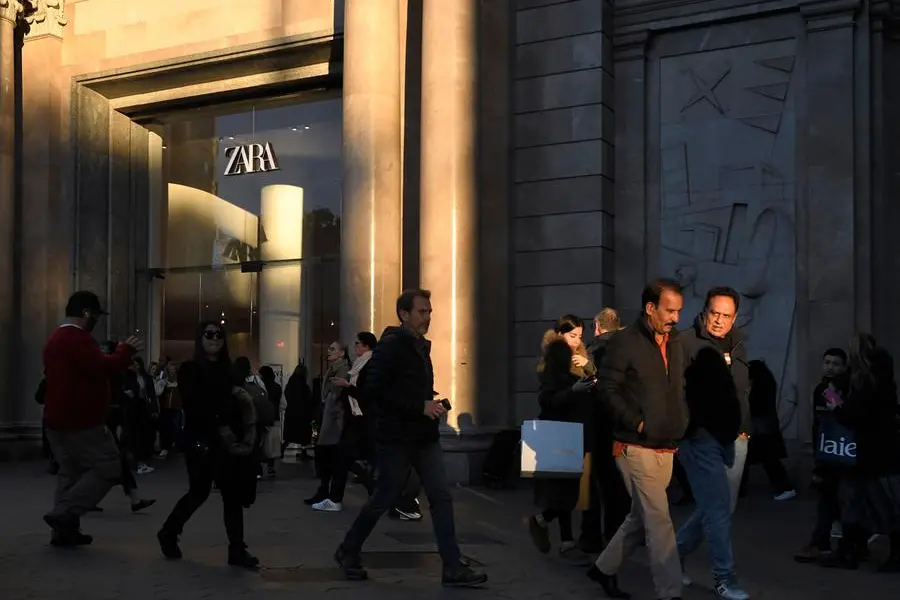PHOTO
Zara owner Inditex, the world's biggest fashion retailer, posted a record net profit for the first half of the year on Wednesday, despite slower sales growth.
The Spanish group said its profit rose 10 percent to 2.8 billion euros ($3.1 billion) in the first six months of its financial year, which ends July 31.
"The design and quality of our fashion proposition and the experience we offer our customers are, together with the efficiency and increasing sustainability of our operations, the keys to the solidity of these results," Inditex chief executive Oscar Garcia Maceiras said in a statement.
Inditex, which also owns Pull&Bear, Bershka, Massimo Dutti and Stradivarius, said its spring and summer collections were "very well received" by customers.
Sales increased by 7.2 percent to 18.1 billion euros, but it was a slower pace than in the first six months of 2023, when they grew by 13.5 percent.
Analysts, however, had expected the slowdown after four years of record earnings. The group's net profit was close to expectations from analysts surveyed by financial data firm FactSet.
The company said sales were strong at the start of the third quarter, rising 11 percent between August 1 and September 8 when compared to the same period a year ago.
"Inditex continues to see strong growth opportunities." the statement said, listing among its key priorities the enhancement of " the customer experience".
The company said it plans to spend 900 million euros per year in 2024 and 2025 to expand its logistics capabilities and "use the most up-to-date technology".
"The group's performance continues to be very positive," said Ivan San Felix, an analyst at Madrid-based broker Renta 4.
While sales growth is "now more moderate", it has remained at a high level and been "relatively stable since the third quarter of 2023," he added.
"Inditex has an extremely solid model in terms of logistics' and is "perfectly prepared to take on any competitor."
The company's logistics centres strive to make regular deliveries to stores to ensure they are kept up to date with the latest fashions while keeping inventory and costs down.
Store managers track the popularity of garments so items that sell more slowly are quickly dropped.
Traditional fashion retailers have endured tough competition from low-cost shopping platforms such as Chinese-founded rival Shein or Ireland's Primark.
Inditex, however, has brushed off the competition and its share price has jumped by 30 percent since last year.





















